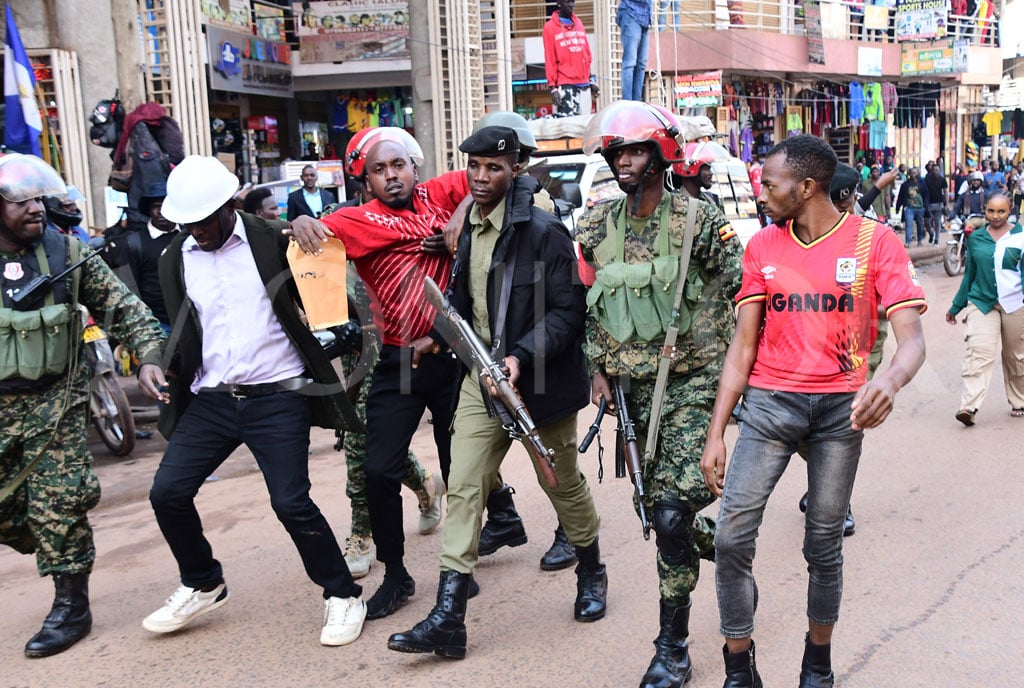
Mercy Awino
In recent years, President Museveni has frequently saluted the younger generation of Ugandans as ‘bazzukulu,’ a term meaning ‘grandchildren’ in Luganda. While initially embraced warmly, this rhetoric has come under scrutiny as corruption scandals and government inaction have fuelled public dissatisfaction.
July 23 saw a number of young Ugandans take to the streets in protest against corruption. While the number of protesters on the streets may have seemed small, there has been an overwhelming surge of activism on social media, underscoring its capacity to enhance advocacy efforts.
In response to the growing unrest, the President posted on X (formerly Twitter), a statement which, instead of engaging with the youth’s demands, accused them of planning very bad things with funding from foreign sources. This infuriated the younglings and led to overt rejections to being referred to as ‘bazzukulu’.
This rejection is not the case of a bunch of bitter and emotional Gen Z making noise on social media as a few people have stated. In the bigger picture, it is a rejection of paternalism and the skewed patronage that has been suffered upon the Ugandans for decades.
The characterisation of citizens as one’s grandchildren by a Head of State is symbolic of how he or she regards and expects to relate with them. The rhetoric places Ugandans in the position of dependants on the filial goodwill of a patriarch - goodwill that can be given and withdrawn, depending on how the grandchildren behave.
In African tradition, a grandchild typically doesn’t hold their grandparent accountable. Their age, experience and presumed wisdom is near sacred, and the grandchild’s duty is limited to obedience and love.
Grandchildren also typically have the innocent belief that their grandparent has their best interest at heart and that their needs and concerns will also be handled by these elders.
And so, in the closing lines of his statement, the President tells Ugandans that “…the fight against corruption is in my hands … I am now leading this little war. We fought the bigger war. We shall win this one also.” This illustrates the trust that we, his “bazzukulu”, should have in his ability to take care of our needs.
But the question of the day is; should we accept this patronage? Our collective answer is a resounding “NO!” As celebrated human rights lawyer Nicholas Opiyo aptly stated, “When they call us ‘bazzukulu’, they are seeking to alter our relationship with the State… Altering our relationship with those in power or any other citizens is illegal and disingenuous. We must all reject it.”
The bazzukulisation of citizens conveys the message that young people cannot question or challenge the authority of the President and raises concerns for several reasons.
First, it limits the young people’s ability to seek accountability. As illustrated by the post on X, it is patronising for a duty bearer to relegate protests demanding an end to corruption, as a sponsored neo-colonial strategy against the state without actually addressing the glaring issues.
Secondly, it perpetuates a sense of helplessness among the youths and conveys a message that their voices are of secondary importance.
So when citizens demand that lawmakers who have allegedly swindled public funds are held accountable, the obvious reaction is to be ignored and issues left unaddressed.
Most importantly, it implies that the youth should demonstrate deference and submission rather than active engagement.
Therefore, in rejecting the now infamous ‘bazzukulu’ rhetoric, the youth of Uganda are not merely making noise on social media - they are calling for a fundamental change in how their government treats them.
Moving forward, the State should recognise and respect its citizens, ensuring the social contract is upheld and that all Ugandans are treated with dignity and respect.
All persons in public service hold their offices in delegated capacity and these positions do not place them above others. We must remember that all citizens are equal, with none above the other.
Ms Awino is a lawyer and a governance practitioner.




